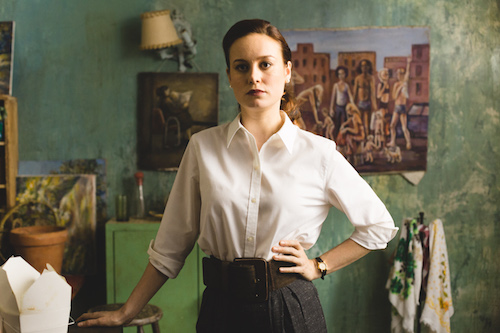The Glass Castle puts a Hollywood lie on a true story

"When it comes to my family," Jeannette Walls scolds her fiancee early in The Glass Castle, "let me do the lying, okay?" In this part of the film, Walls is portrayed by Brie Larsen as a steely gossip columnist, and the line is delivered with a forcefulness that makes it clear she's not kidding. It's an interesting line to begin the film with, because Castle is based on Walls's memoir of the same name, and it's one of those memoirs that feels too sensationalistic to be true.
Walls grew up in a nonconventional family: her brilliant alcoholic father kept them moving around the country, often to avoid arrest for some confrontation or another. Her mother was frequently oblivious to the danger surrounding her children. And her three siblings were raised without access to traditional education or financial security. Unlike some of the other too-crazy-to-be-true memoirs of its time, though — Running with Scissors, for example, was largely deflated — Castle seems to have withstood the scrutiny that came with its bestseller status. It's one of those horrible, bizarre stories that feels like a lie, but is actually true.
And now here comes Hollywood to blur the line between reality and fantasy. This adaptation of Castle deserves your respect, at least, for not giving the book the softball treatment. There are scenes of child endangerment in this movie that will make most adult viewers clench every muscle in their body. Jeanette's father Rex (Woody Harrelson, giving a half-brilliant, half-cliched performance) is a charming rogue and also a sloppy, violent drunk. The family is at once a coherent, loving unit and an abusive snowball of codependence, hurtling toward destruction.
I'm making it sound less entertaining than it is. For its first half, Castle is a breezy movie with some genuinely funny lines and two or three masterfully shot sequences. The film is structured along two timelines, with an adult Jeannette reflecting back on her life in flashbacks, and the screenplay does a decent job of slowly revealing the complexity of its characters over the distance of many scenes.
And the narrative is buoyed by some fantastic little character touches along the way. Rex fiddles with a doorknob while expounding in a grandiose monologue about all the unnecessary problems the Malevolent Doorknob Industry has unleashed on the world, and the moment feels perfect to the character and nicely underplayed. The child actors are terrific. For a few brief moments, it seems like the kind of movie that might get remembered at Oscar time.
Unfortunately, Castle can't sustain that momentum. The score is so treacly that it consistently undermines the film's emotional beats. Adult Jeannette's struggles are portrayed as too pat. The aging and de-aging of characters leaves a lot to be desired—Larson is not a convincing high schooler, and Harrelson looks too old to be young in early scenes and too young to be old in later scenes. And the movie is too quick to forgive some heinous actions that deserved more contemplation.
Still, Castle is better than its mid-August dumping ground release date would indicate. At least three scenes — an arm-wrestling match, a swimming lesson, and a domestic dispute that spins out of control — are perfect examples of how to effectively build and release tension. But the artificiality of some of the other scenes and the unevenness of Harrelson's and Larson's performances detracts from the book's central strength — the insistence that no matter how outrageous it gets, the story is the truth. At its heart, the film feels like a lie that glosses over something much more interesting.